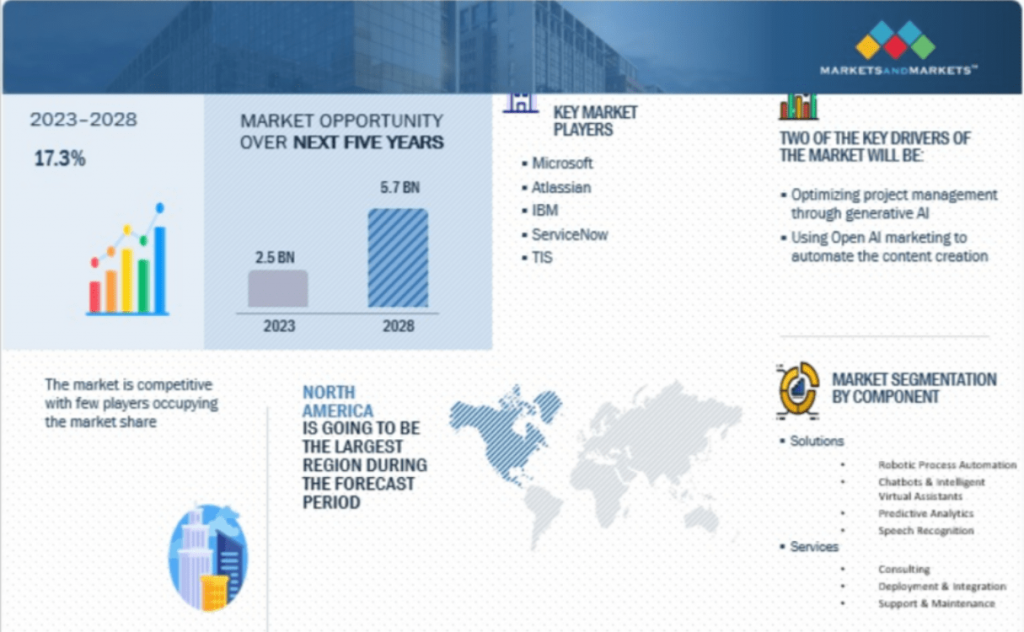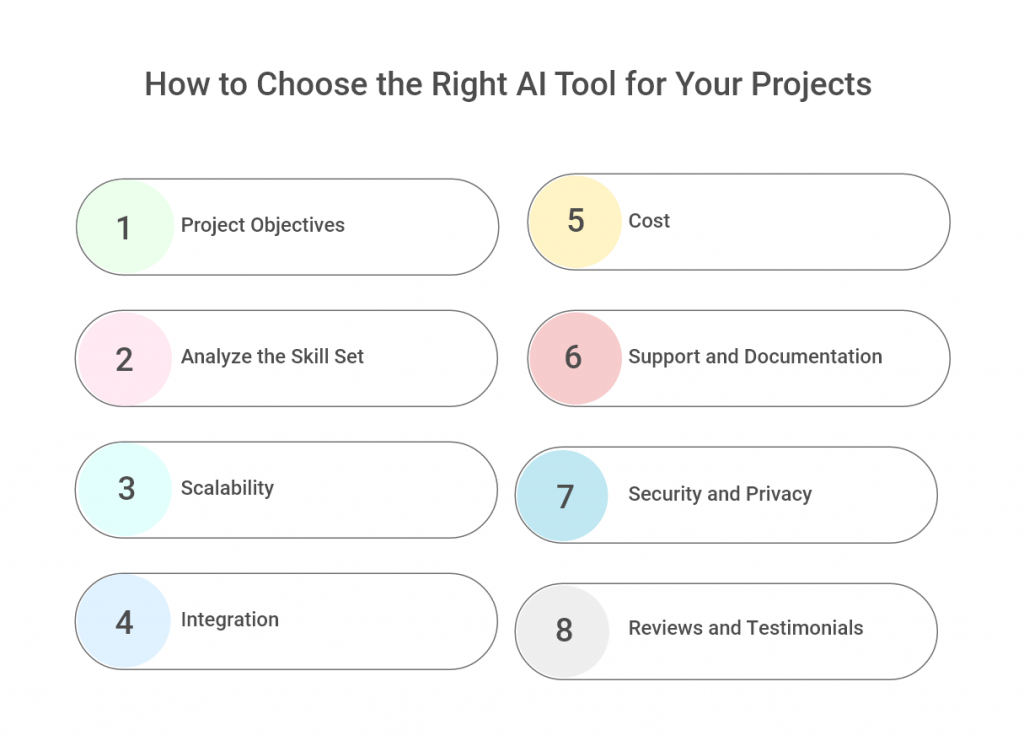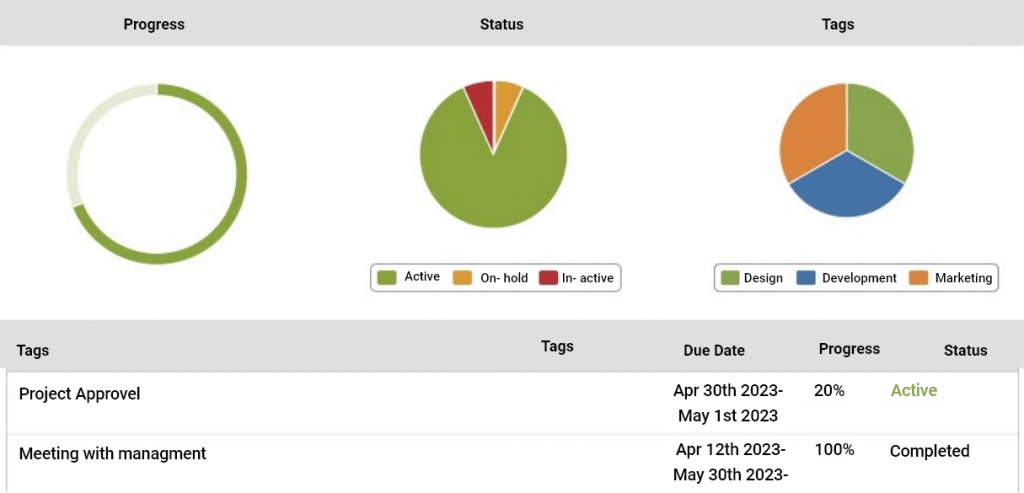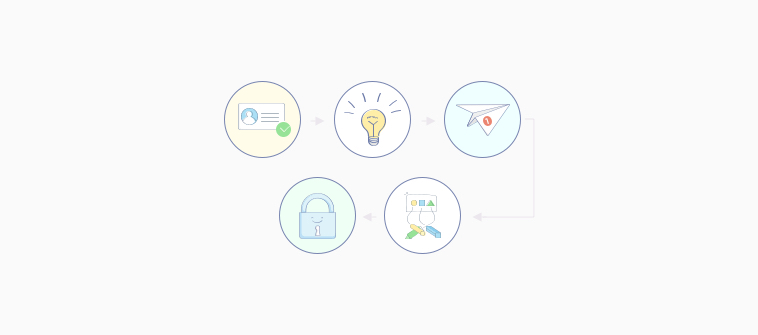AI is not just a fashionable buzzword or a vision of the future.
It is already transforming the way projects are planned, executed, and delivered. AI in project management can help project managers and teams achieve better results, faster and more efficiently.
This is because AI-powered algorithms analyze data faster than a caffeinated cheetah, predicting potential roadblocks and crafting ingenious strategies. From risk assessment to resource allocation, AI does it all!
But fear not project managers, you’re still the real leaders. AI just happens to be the trusty assistant, simplifying complexities and boosting productivity.
This blog will delve into everything you need to know about AI in project management, where human-AI teamwork provides boundless possibilities!
What Is Artificial Intelligence (AI)?
Artificial intelligence (AI) refers to the capability of machines or software to execute tasks that typically require human intelligence. These include understanding language, recognizing images, making decisions, or playing games.
AI is a broad field that involves many methods and applications. Some of the most common methods are machine learning, natural language processing and robotics.
But what does artificial intelligence imply in project management?
Let’s find out!
What Is Artificial Intelligence in Project Management?
Let’s start by looking at some noteworthy studies and statistics to get a gist of what’s happening with AI in project management.

According to this report, during the forecast period, the AI project management market is estimated to experience a Compound Annual Growth Rate (CAGR) of 17.3%, soaring from $2.5 billion in 2023 to $5.7 billion by 2028 on a global scale.
Also, a recent AI@Work report by PMI stated that project leaders at the forefront of AI and other cutting-edge technologies often attest that integrating AI has significantly reduced the time spent on tasks such as progress monitoring, documentation management, and activity and resource planning.
And yet another report conducted by Gartner.Inc predicts that by 2030, artificial intelligence (AI) will revolutionize the project management (PM) discipline, leading to an 80 percent reduction in traditional PM tasks like data collection, tracking, and reporting.
So if we were to sum up what artificial intelligence implies in project management, then that is efficiency.
Imagine a digital assistant with a knack for multitasking, keeping tabs on deadlines, resources, and risks while granting you the gift of foresight. Yes, that is AI.
AI analyzes heaps of project data, extracting insightful patterns and predictions that mere mortals could only dream of.
From assigning tasks in the perfect workflow to streamlining communication like a magical messenger, AI sprinkles its brilliance throughout the project’s lifecycle.
Wondering whether your role as a project manager is at risk of being replaced? The answer is a big “No.”
AI is not here to replace you but to empower you with its magical touch, ensuring consistent success in one project after another!
Read More: 9 Emerging Project Management Trends in 2025
To understand AI in project management better, let’s delve into its 5 key benefits for your business.
6 Business Benefits of AI in Project Management

Let’s dive into the exciting ways AI is reshaping the project management industry.
1. Enhanced Project Planning & Scheduling
AI in project management improves planning and scheduling processes by analyzing vast amounts of historical project evaluation data, resource availability, and external factors. It enables accurate forecasting and the identification of critical paths for efficient project completion.
Here, AI-powered project management tools can recommend optimal timelines, considering various dependencies and resource constraints, leading to better-informed decision-making and increased project success rates.
Read More: What is a Gantt Chart & How to Use Gantt Charts for Project Planning
2. Real-Time Data Insights & Decision-Making
AI allows project managers to access real-time data and insights. Through data integration and analytics, AI-driven tools help monitor project progress, identify bottlenecks, and predict potential delays.
This fosters proactive decision-making and enables managers to make timely adjustments to ensure project milestones are met.
For example, AI can analyze project data and notify stakeholders when deviations from the plan occur, enabling immediate corrective action.
3. Resource Allocation & Optimization
AI facilitates efficient resource allocation and optimization by analyzing historical data, resource availability, and project requirements. AI-driven algorithms can suggest the best allocation of resources, such as personnel, equipment, and budget, to maximize productivity and minimize costs.
As an illustration, AI can assess the performance of team members, match their skills with project tasks, and recommend the most suitable team composition for improved efficiency.
With an AI-powered tool, you can create tasks, prioritize them, and allocate resources within seconds.
Read More: Resource Planning for Multiple Projects: A Guide for 2025
4. Risk Management & Mitigation
AI enhances risk management by identifying potential risks and suggesting mitigation strategies. By analyzing historical project data and external factors, AI can predict risks that might impact project outcomes.
This empowers project managers to proactively develop risk mitigation plans and avoid potential pitfalls.
For example, AI can predict weather patterns that could affect construction projects, prompting managers to adjust schedules or take necessary precautions.
5. Improved Stakeholder Communication
AI-powered project management tools streamline communication with stakeholders by automating status updates, progress reports, and alerts. This ensures that all stakeholders stay informed about the project’s current status and any changes that may impact them.
Collaboration and transparency also enhance, leading to stronger relationships with clients, team members, and other stakeholders. Additionally, reinforcement learning with human feedback can further enhance these tools by continuously improving the accuracy and relevance of automated responses, ensuring they align with stakeholder expectations.
For instance, AI chatbots can provide instant responses to stakeholder queries, reducing the need for manual intervention.
6. Continuous Project Improvement Through Insights
AI facilitates continuous improvement by learning from past project data and generating valuable insights.
Through machine learning algorithms, AI identifies patterns and trends from completed projects, enabling project managers to optimize future projects. These insights can lead to refined processes, better resource allocation, and increased project success rates.
For example, AI can analyze the factors contributing to successful projects and provide recommendations for replicating those strategies in new projects.
These benefits convey the role of AI in project management. Together, these collectively contribute to increased project efficiency, higher success rates, and a competitive edge in the business landscape.
Now, you might wonder, will the roles and responsibilities of project managers, team members, and stakeholders change with AI being so deeply integrated into everyday project management practices?
Let’s dig deeper into this aspect next.
How Is AI Reshaping the Roles of Project Managers, Team Members, & Stakeholders?
As organizations strive for greater efficiency, AI has become a game-changer, reshaping the roles of project managers, team members, and stakeholders.
Here, we will look at how AI is revolutionizing project management for key project stakeholders.
Smarter Project Managers
AI tools have empowered project managers with smarter insights and data-driven decision-making capabilities.
By analyzing extensive datasets, AI can identify potential risks, anticipate project roadblocks, and suggest optimal strategies.
Project managers can now focus on strategic planning and relationship-building with stakeholders rather than getting bogged down by tedious data analysis. With AI as their ally, project managers can harness their creativity and leadership skills to drive projects to success.
Collaborative Team Members
AI is no longer an adversary to team members; instead, it has become their greatest supporter. Collaborative tools fueled by AI enable team members to work seamlessly, even if they are located in different corners of the globe.
Real-time communication, document sharing, and task assignment have become more efficient, fostering a cohesive work environment. With repetitive tasks automated, team members have more time to concentrate on critical thinking and problem-solving, adding significant value to project outcomes.
Enhanced Stakeholder Engagement
Gone are the days of long-winded project updates and cumbersome presentations. AI has ushered in a new era of stakeholder engagement with interactive and personalized dashboards.
Stakeholders can now access real-time project data, track progress, and monitor key performance indicators effortlessly. This transparency and accessibility promote trust and collaboration between project teams and stakeholders, leading to quicker decision-making and improved project outcomes.
As AI continues to evolve, the project management landscape will witness even more exciting changes, redefining how we approach and execute projects in the future. Embracing AI as an ally rather than a threat is the key to unlocking the full potential of this technological revolution in the world of project management.
But what does it take to become an AI-ready project manager?
That’s what we’ll explore next!
How to Become an AI-Ready Project Manager?
In the AI era, staying ahead of the curve is crucial for project success. Let’s delve into how upskilling and adapting can work wonders to become an AI-ready project manager.
- Embrace AI, Don’t Fear It: AI isn’t here to steal your job; it’s here to enhance it! Embrace the potential and see it as a teammate, not a rival. Acceptance is the first step toward growth.
- Lifelong Learning: Upskilling is a continuous journey. Grab online courses, attend workshops, and join webinars. This will help you familiarize yourself with ongoing AI trends and tactics.
- Get a hands-on experience: Theory is essential, but hands-on experience matters more. Dive into real projects, try AI tools, and face challenges head-on. It’s like learning to ride a bike—practice makes you perfect!
- Collaborate & Network: Two heads are better than one, right? Network with AI enthusiasts, join forums, and exchange ideas. Active collaboration breeds innovation, and you’ll have a support system when things get tough.
- Analyze, Reflect, Improve: Learning from experience is golden. Analyze your projects, reflect on what worked, and what didn’t. Continuous improvement will help you leverage AI beautifully.
- Ethics & Fairness: Ensure ethical practices and fairness in your AI projects. After all, we build AI to enhance humanity, not to cause harm, right?
Remember, upskilling is the key to staying relevant.
But there’s a hiccup, right?
You, as a project manager, are ready to step into the future, but your project team is dragging its feet.
Fear not!
Hop onto the next section. It will help you guide your project teams through the AI world and overcome resistance to AI adoption.
Strategies to Overcome Resistance to AI Adoption in Project Teams
Take a look at some proven strategies that will help your team overcome the resistance to AI adoption.
- Demonstrate what AI can do with real-life case studies and jaw-dropping success stories.
- Involve the team in the decision-making process. Ask them for suggestions while shaping the AI strategy and creating a sense of ownership.
- Organize a friendly AI competition to spark friendly rivalry and boost team camaraderie.
- Arrange workshops and expert talks to bust AI myths and fill knowledge gaps.
- Identify AI advocates within the team and empower them to be AI champions.
- Create a safe space for experimentation, allowing room for trial and error without the fear of failure.
- Show off AI-generated art pieces, merging creativity and technology in an awe-inspiring display.
- Opt for a robust project management tool to ensure a seamless transition and execution of AI workflows and practices.
These are some strategies that will surely help you guide your team through AI practices. But wait, when it comes to choosing a tool, it can be overwhelming to select the right one for your unique needs.
Let’s quickly check out the key criteria for choosing a tool for your business.
How to Choose the Right AI Tool for Your Projects

Here are some key criteria to consider when choosing a tool to incorporate AI into your project management practices.
- Project Objectives: Start by defining your project objectives. What problems are you trying to solve? What outcomes are you looking to achieve during a time period? Having a clear understanding of your specific project goals will guide you in selecting the most suitable AI tool.
- Analyze the Skill Set: Consider the expertise of your team. Some AI tools are simple, user-friendly, and require little to no technical knowledge, while others demand strong programming skills. Be realistic about your team’s capabilities and choose an AI tool that matches their proficiency level.
- Scalability: Today’s projects might be small, but who knows where you’ll be tomorrow? Opt for an AI tool that can scale along with your growing needs. Scalability ensures you won’t be stuck in a rut when your projects evolve and expand.
- Integration: – Check if the tool you select integrates smoothly with the systems and processes you currently use. A seamless integration saves you from headaches and extra work.
- Cost: Money matters! Evaluate the total cost of ownership, including licensing, training, maintenance, and potential hidden fees. Keep in mind that free tools might not always be the best option, especially if they lack essential features or support.
- Support and Documentation: When things go south, you’ll want reliable support and clear documentation. Choose an AI tool with good customer support and an extensive knowledge base. Quick solutions and helpful guides are lifesavers during crunch times.
- Security and Privacy: AI deals with sensitive data, so security is a top priority. Make sure the tool complies with data protection regulations and offers robust security features. No one wants their AI project to turn into a data breach nightmare!
- Reviews and Testimonials: Don’t just trust flashy marketing materials. Look for reviews and testimonials from real users. What are their experiences with the AI tool? Are they achieving their objectives? Learn from their successes and struggles.
With the right approach, choosing the right AI tool for your projects can be easy.
Now, undeniably, AI offers fantastic tools and techniques to streamline project workflows and boost productivity. However, while we marvel at the possibilities, it’s crucial not to overlook the ethical considerations that come with AI-enabled project management.
Ethical Considerations in AI-Enabled Project Management
Take a look at the ethical considerations in AI-enabled project management.
- Bias Beware: AI algorithms learn from historical data, and if that data is biased, the AI can perpetuate these biases. Make sure to monitor AI outputs for potential discrimination based on factors like gender or other personal attributes.
- Human Accountability: While AI can handle repetitive tasks and crunch numbers, it’s still essential to have human accountability in project management. Ultimately, humans should be responsible for decisions and outcomes, and AI should serve as an aid, not a replacement.
- Transparency Talk: AI algorithms might seem like magical black boxes, but project managers must strive for transparency. Understanding how AI arrives at its conclusions is crucial in making well-informed decisions and gaining the trust of stakeholders.
- Data Privacy Matters: AI project management thrives on data, but it mustn’t cross ethical boundaries. Protect sensitive information and ensure data privacy compliance to avoid any legal or reputational repercussions.
- Autonomy vs. Oversight: AI can perform tasks autonomously, but it’s vital to maintain human oversight. Striking the right balance ensures that AI doesn’t veer off-course, leading to unintended consequences.
- Data Quality Checks: Garbage in, garbage out! Ensure the data fed to train AI systems is accurate and relevant. Poor data quality can lead to flawed AI decisions, undermining the entire project.
- Ethics Training: Incorporate ethics training for employees involved in AI-enabled project management. Educating the team about ethical considerations will help build a conscious AI culture.
By addressing these ethical considerations, project managers can leverage the power of AI while ensuring that its implementation aligns with the values and principles of the organization and society.
Let’s also peek into some AI trends that will shape the future of project management.
The Future of AI in Project Management: 4 Trends to Expect
Take a look!
Trend 1: Intelligent Project Planning and Scheduling
Bid farewell to those arduous days of manual planning and scheduling!
AI is gearing up to take over the reins and become your trusty project planner. With a treasure trove of data at its disposal, AI will crunch numbers, analyze past project performance, and predict future bottlenecks like a seasoned fortune-teller.
Equipped with this valuable foresight, AI will optimize schedules, ensuring that your resources are utilized efficiently, deadlines are met, and unexpected hiccups are minimized.
Imagine having a digital assistant that understands your project’s ins and outs better than you do – it’s like having a genius collaborator by your side, 24/7!
Trend 2: Enhanced Team Collaboration and Communication
Say goodbye to communication breakdowns and misunderstandings among team members!
AI-powered project management tools are set to transform how teams collaborate and communicate.
Thanks to natural language processing (NLP) capabilities, AI will become the master translator, bridging the gap between diverse team members and their unique lingo. No more jargon confusion or “lost in translation” moments!
Moreover, AI chatbots will revolutionize team communication by facilitating instant information exchange. Need a quick update on a task’s status? Ask the chatbot! Want to assign a new task? The chatbot has got your back!
Watch this quick video to learn the benefits of adding an AI-powered chatbot to your website.
Trend 3: Real-Time Data-Driven Decision Making
Get ready to usher in an era of data-driven decision-making like never before! AI will be at the forefront, deploying its analytical power to help project managers make informed choices.
By analyzing real-time data, AI will provide valuable insights into project progress, resource allocation, and potential risks. These insights will empower project managers to swiftly adapt their strategies, fine-tuning the course of action as they go.
No more relying on gut feelings – data will be the captain of the ship!
For example, consider this project report by ProProfs Project. This AI-powered report offers a comprehensive view of the project’s progress. Consequently, you can closely monitor essential project metrics and adapt strategies as needed.

Trend 4: AI-Enabled Risk Management
Project managers, meet your new ally in the battle against risks – AI! With its ability to comb through vast amounts of historical project data, AI will identify patterns and detect potential risks before they rear their ugly heads.
AI will be your early warning system, sounding the alarm when it senses trouble on the horizon. From budget overruns to resource shortages, AI will help you prepare contingency plans and navigate through stormy waters with confidence.
The future of AI for project management is bright and brimming with potential. From intelligent planning and enhanced collaboration to real-time data-driven decisions and AI-enabled risk management, these trends promise to reshape how projects are executed.
Embrace the AI revolution, and let it be your guiding light in the complex world of project management.
As we embark on this exciting journey, remember that AI is not here to replace us but to empower us. So, let’s welcome our AI companions with open arms and embark on a new era of efficient, effective, and extraordinary project management!
Stay Ahead of the Curve With AI in Project Management
In recent months, AI has been shaking up the way we live, work, and interact. Its influence has spread to various industries, including project management.
This blog extensively discussed the pivotal role of AI in project management, along with some strategies you can use to implement AI effectively. By continuously exploring innovative ways to leverage AI, you can significantly accelerate repetitive tasks and mundane work, optimizing your project processes and tasks.
Embrace a mindset of experimentation, continuously testing and refining different AI approaches to find the one that best aligns with your unique project needs.
And remember, when it comes to conquering resistance, the secret is to combine wit, creativity, and enthusiasm.
FREE. All Features. FOREVER!
Try our Forever FREE account with all premium features!





